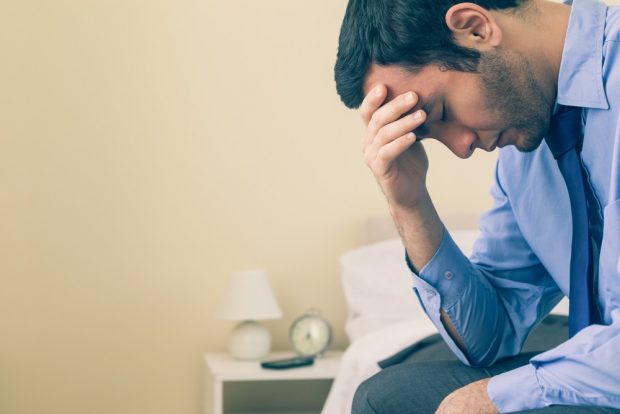When you hear menopause, you’re likely to picture hot flashes and mood swings affecting the women in your life. These symptoms are triggered by hormonal changes that every woman will experience when she reaches a certain change. However, as the male body also contains hormones, one must wonder if they also experience their own version of menopause.
The concept of male menopause may sound ridiculous, probably because you’re imagining your father and uncle complaining about hot flashes. Symptoms associated with menopause will not always be present in men going through male menopause. But before we delve into that, it’s important first to understand exactly what male menopause is.
What is male menopause?
As mentioned, women aren’t the only ones who experience hormonal changes as they age. Andropause (from the word androgen, which refers to a group of male hormones, most notably testosterone and androstenedione) refers to the period in a man’s life when his hormonal production begins to drop.
While menopause is a legitimate medical condition. Andropause is simply the term used to describe a particular period in a man’s life. Therefore, while every woman will experience menopause, not every man will go through andropause.
So what exactly constitutes andropause?
As men age, their levels of androgen will decrease, after having peaked during their adolescent and early adulthood years. In fact, the Mayo Clinic notes that they will experience a 1% decline in androgen levels every year, past the age of 30. Eventually, around the age of 70, the androgen levels are likely to be half of what they were at their peak. Compared to women, this hormonal decline is quite gradual as the hormonal changes during menopause are quite steep and swift.
To diagnose abnormal declining hormones in males, doctors will first have to decipher if it’s as a result of age, external factors, or late-onset male hypogonadism – a condition affecting 2.1% of males, whereby the body’s sex glands have trouble producing enough testosterone or sperm, or both. It is characterized by low libido, depression, loss of body hair, insomnia, erectile dysfunction, hot flashes, and breast enlargement.
That said, doctors need to ensure that the symptoms one may be displaying are directly linked to declining testosterone levels, and they do this by ordering tests so that they can confirm that the symptoms are not linked to other serious medical problems.
What are the symptoms of declining androgens?
Not every man will experience the same symptoms when it comes to the gradual decline of hormones. What’s more, it can be difficult for doctors to address the symptoms associated with male menopause as some may not even be as a result of low testosterone, but other concerns. That said, below are the most common symptoms associated with lower levels of testosterone:

- Abdominal fat
- Decreased libido
- Depression
- Erectile dysfunction
- Excessive sweating
- Hot flashes
- Insomnia
- Loss of energy
- Loss of muscle mass
- Lower frequency of morning erections
- Reduced bone density
Is age the only thing to blame?
As mentioned, the average man will begin to experience a one percent decline in testosterone levels once he reaches the age of 30. That said, a lot of doctors do not associate male menopause with the age-related decline of testosterone as if they did, every man would thus experience male menopause. With that in mind, what other factors could lead to the decline of testosterone levels in the average man?
For one, men who experience declining testosterone levels are likely to be dealing with heart disease, obesity, high blood pressure, and type 2 diabetes.
However, other risk factors that may contribute to declining testosterone levels in older men include:
- Chronic stress
- Excessive consumption of alcohol
- Lack of exercise
- Lack of sleep
- Poor diet
- Smoking
Aside from this, low testosterone levels may also be linked to late-onset hypogonadism.
Getting a diagnosis
If you’re experiencing any of the above symptoms, it’s important to visit your doctor so that he can help both identify and address the symptoms. However, don’t expect your doctor to diagnose you with a case of male menopause. Aside from the fact that there is yet to be a definite conclusion as to what defines male menopause, your symptoms may be linked to other factors.
That said, your doctor is most likely going to perform a physical exam, as well as a blood test in order to determine your testosterone levels. In regards to this, abnormal testosterone levels are when levels fall below 300 ng/dL (1). They will also take note of your physical symptoms.
Addressing your “male menopause”
As there is no clear definition of what male menopause is, then there’s no clear cure. Therefore, your doctor is likely going to suggest a course of treatment that will help to alleviate the symptoms you’re showing.
Your doctor may recommend lifestyle changes that include cutting back on processed foods, increasing your intake of whole grains and fruits, and vegetables, exercising more, quitting smoking, and adopting stress-relieving techniques such as yoga, and mindful meditation. Additionally, he may also suggest, in severe cases, testosterone replacement therapy (TRT) and prescribe medications that encourage testosterone production.
In regards to TRT, the FDA once ruled that using them may increase the risk of prostate cancer, heart attack and stroke (3). While TRT may have worked for some men, there is still a need for more research that will effectively prove both its safety and usefulness.
If you’re really thinking about TRT, then it’s important to first consult your doctor so that they can highlight the potential risks and side effects.
Conclusion
Men will experience a hormonal decline as they age. Yet, referring to it as male menopause is a bit of a stretch. Especially when you consider the fact that female menopause is a medical condition, as opposed to male menopause.
However, abnormally low levels of testosterone are concerning. Therefore, it’s important to consult with your doctor if you believe that your testosterone levels are truly out of whack.



![women [longevity live]](https://longevitylive.com/wp-content/uploads/2020/01/photo-of-women-walking-down-the-street-1116984-100x100.jpg)










